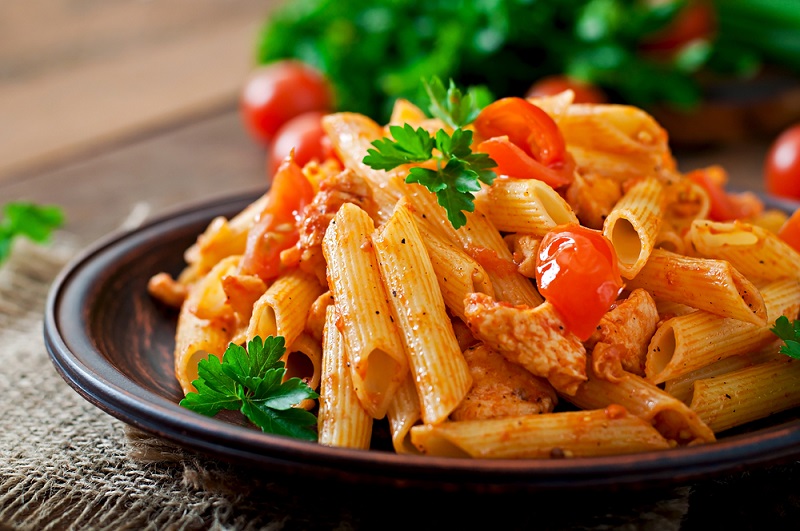Can Eating Pasta Really Help You Lose Weight?

Get the world’s most fascinating discoveries delivered straight to your inbox.
You are now subscribed
Your newsletter sign-up was successful
Want to add more newsletters?

Delivered Daily
Daily Newsletter
Sign up for the latest discoveries, groundbreaking research and fascinating breakthroughs that impact you and the wider world direct to your inbox.

Once a week
Life's Little Mysteries
Feed your curiosity with an exclusive mystery every week, solved with science and delivered direct to your inbox before it's seen anywhere else.

Once a week
How It Works
Sign up to our free science & technology newsletter for your weekly fix of fascinating articles, quick quizzes, amazing images, and more

Delivered daily
Space.com Newsletter
Breaking space news, the latest updates on rocket launches, skywatching events and more!

Once a month
Watch This Space
Sign up to our monthly entertainment newsletter to keep up with all our coverage of the latest sci-fi and space movies, tv shows, games and books.

Once a week
Night Sky This Week
Discover this week's must-see night sky events, moon phases, and stunning astrophotos. Sign up for our skywatching newsletter and explore the universe with us!
Join the club
Get full access to premium articles, exclusive features and a growing list of member rewards.
Pasta lovers had reason to celebrate yesterday, as headlines declared that the often-demonized carbohydrate could "help you lose weight." But is this mainstay of Italian cuisine really good for your waistline?
The headlines were referring to a new meta-analysis, published yesterday (April 3) in the journal BMJ Open, that found that eating pasta was not linked with weight gain when it was consumed as part of a "low-glycemic-index" diet. (Foods that have a low glycemic index release sugar slowly into the bloodstream. Pasta has a relatively low glycemic index compared with other refined grains, such as white bread.)
The researchers analyzed data from 29 studies with a total of nearly 2,500 people who either consumed pasta as part of a low-glycemic diet or ate other carbohydrates that had a higher glycemic index. After about 12 weeks, those in the pasta groups lost, on average, about half a kilogram, or 1.1 lbs., compared with the groups that ate the other carbohydrates.
But the new findings are not an invitation to gorge on pasta. For one thing, the people in the pasta groups certainly weren't doing so. Instead, they had, on average, 3.3 servings of pasta each week — and one serving was equal to about one-half cup of cooked pasta.
In addition, the researchers stressed that the findings apply only to pasta eaten in the context of a low-glycemic-index diet. Whether the new findings "will hold in the context of other healthy dietary patterns, such as Mediterranean and vegetarian dietary patterns, is unclear," the researchers wrote in their paper. [9 Snack Foods: Healthy or Not?]
What's more, the researchers noted that the amount of weight loss seen in the study was small and that it's unclear if people would keep this weight off over the long term.
Heather Mangieri, a registered dietitian and nutrition consultant in Pittsburgh, who was not involved in the study, said that the results did not surprise her. Although pasta and other carbohydrates have a "bad reputation," these foods can still have a place on your plate, she said.
Get the world’s most fascinating discoveries delivered straight to your inbox.
"If your pasta is portioned properly and paired with a nutrient-rich vegetable and a lean protein, it can be a very healthy option," Mangieri told Live Science. (A proper portion of pasta is is about one-half cup to one cup, she added.)
But people need to be careful when they combine pasta with items like rich sauces, she said.
"Think about it — how many people eat pasta alone?" Mangieri said. "The calorie count climbs quickly when your pasta is covered with creamy sauces and eaten with high-fat meatballs and garlic bread."
So, when people eat pasta, they should keep in mind the glycemic index and calorie count of the other foods they add to it, she said.
The findings highlight an important aspect of diet planning, which is that you don't necessarily need to cut out your favorite foods to maintain a healthy weight, Mangieri said. "Good things come when you learn how to eat your favorite foods in a way that helps you maintain a healthy weight, versus depriving [yourself] and feeling as if you're on a diet," she said.
The meta-analysis wasn't funded by the pasta industry; however, some of the authors previously received research grants, in-kind donations of pasta for studies and travel support from the pasta maker Barilla.
Original article on Live Science.

Rachael is a Live Science contributor, and was a former channel editor and senior writer for Live Science between 2010 and 2022. She has a master's degree in journalism from New York University's Science, Health and Environmental Reporting Program. She also holds a B.S. in molecular biology and an M.S. in biology from the University of California, San Diego. Her work has appeared in Scienceline, The Washington Post and Scientific American.
 Live Science Plus
Live Science Plus











